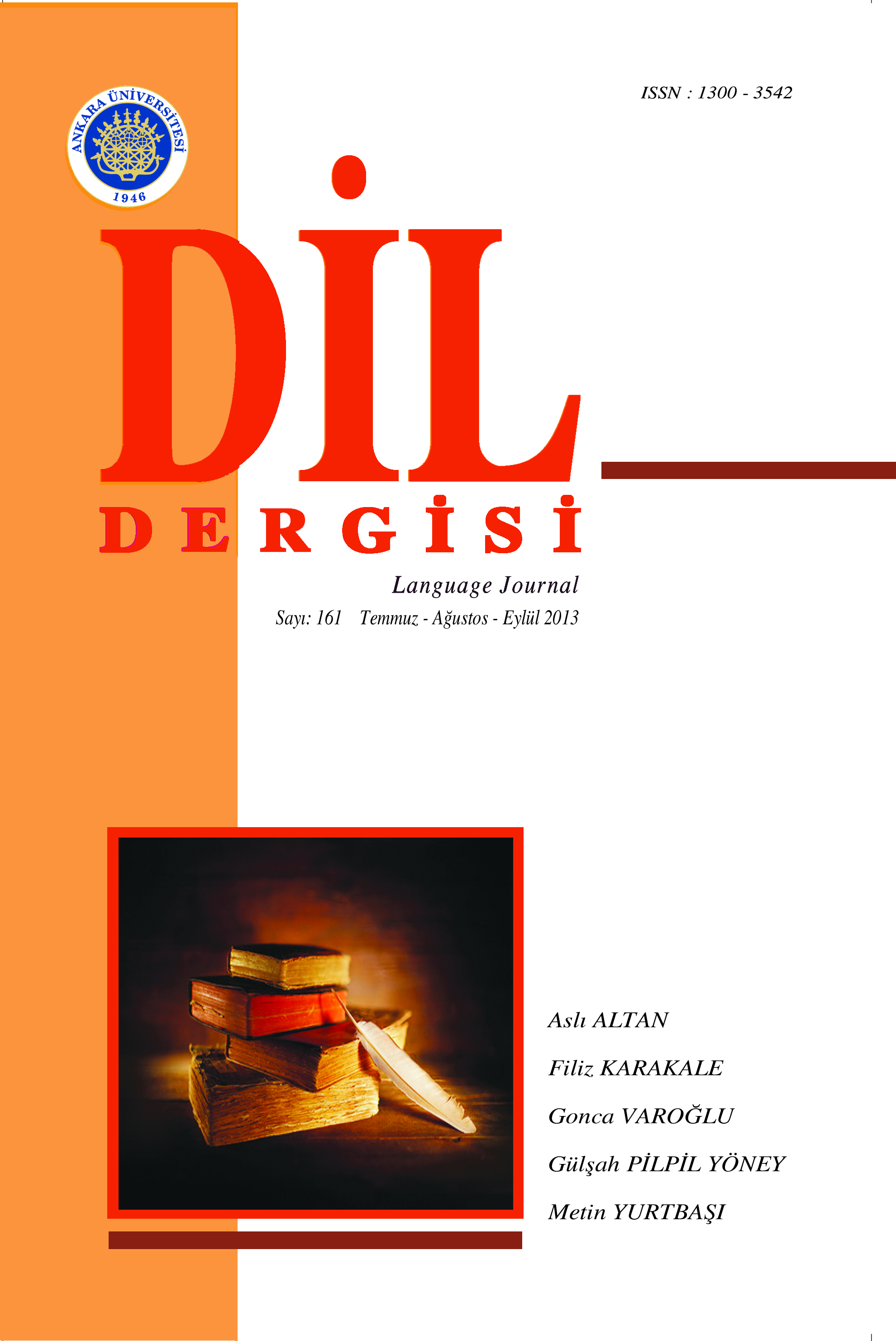Japoncada “Hara” Türkçede “Karın” Sözcüğü İle Oluşan Deyimlerin Kavramsal/Anlamsal Karşılaştırması
Conceptual/Semantic Comparison between Japanese and Turkish Idioms Including the Words “Hara” and “Karın”
Author(s): Gonca VaroğluSubject(s): Language studies, Education, Foreign languages learning, Semantics, Cognitive linguistics
Published by: Ankara Üniversitesi TÖMER
Keywords: Japanese; Turkish; language, body; hara; karın; idioms;
Summary/Abstract: Cognitive linguistics, unlike the other fields of linguistics, is a interdisciplinary field which puts human and human perception in the center. Considering human and human body as a whole in human perception and describing the importance of the human body in the formation of linguistic perception have increased rapidly especially with cognitive linguistics. In this study, Japanese and Turkish idioms are compared including body parts of hara and karın conceptually and semantically. With this comparison, perceptual similarities and differences in both languages have been revealed. As a result, considering in terms of meanings, it is understood that hara and karın refer to the same part of body and semantic frameworks of this words are quite close to each other except for a few differences. However cosidering the idioms including this words, it is identified that both languages have just a few phrases with the same meaning. The result of this study, it is found that hara has a wider and deeper conceptual framework
Journal: Dil Dergisi
- Issue Year: 2013
- Issue No: 161
- Page Range: 34-49
- Page Count: 16
- Language: Turkish

